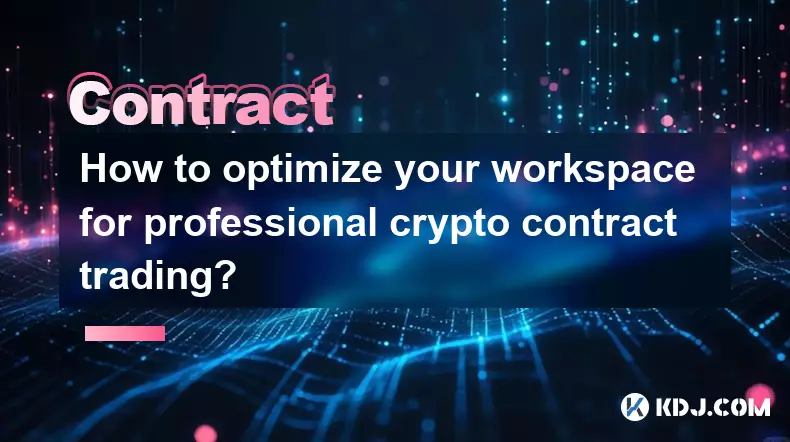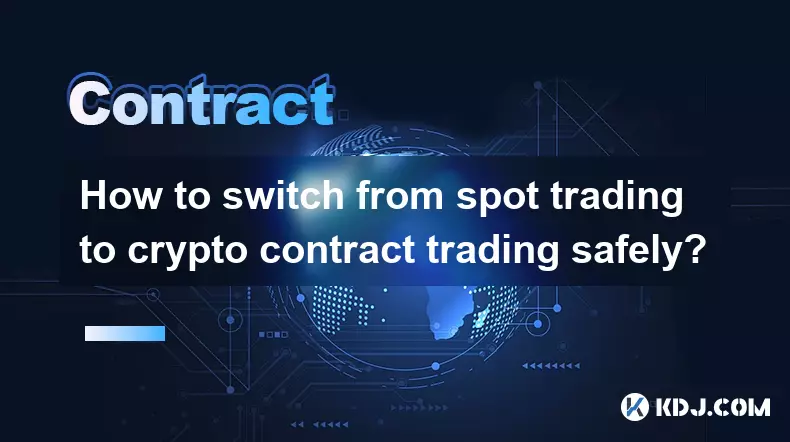-
 bitcoin
bitcoin $87959.907984 USD
1.34% -
 ethereum
ethereum $2920.497338 USD
3.04% -
 tether
tether $0.999775 USD
0.00% -
 xrp
xrp $2.237324 USD
8.12% -
 bnb
bnb $860.243768 USD
0.90% -
 solana
solana $138.089498 USD
5.43% -
 usd-coin
usd-coin $0.999807 USD
0.01% -
 tron
tron $0.272801 USD
-1.53% -
 dogecoin
dogecoin $0.150904 USD
2.96% -
 cardano
cardano $0.421635 USD
1.97% -
 hyperliquid
hyperliquid $32.152445 USD
2.23% -
 bitcoin-cash
bitcoin-cash $533.301069 USD
-1.94% -
 chainlink
chainlink $12.953417 USD
2.68% -
 unus-sed-leo
unus-sed-leo $9.535951 USD
0.73% -
 zcash
zcash $521.483386 USD
-2.87%
Gate.io contract trading rules
Gate.io's contract trading rules provide a comprehensive framework that governs contract specifications, order types, risk management tools, order execution, and fees, ensuring a fair and transparent trading environment for users to speculate on price fluctuations of various underlying assets.
Nov 10, 2024 at 03:47 pm

Gate.io, a leading cryptocurrency exchange, offers a robust contract trading platform that enables users to speculate on the price fluctuations of various underlying assets. To ensure a fair and transparent trading environment, Gate.io has established comprehensive rules and regulations governing contract trading activities. This guide will provide an in-depth understanding of Gate.io's contract trading rules, answering potential questions and guiding users through the intricacies of this dynamic trading arena.
1. Contract Specification- Contracts: Gate.io offers a diverse range of perpetual and futures contracts, covering a wide spectrum of underlying assets, including cryptocurrencies, commodities, indices, and more. Each contract has unique specifications, such as contract size, underlying asset, margin requirements, and expiration dates.
- Contract Size: The contract size refers to the amount of the underlying asset that each contract represents. The contract size varies depending on the underlying asset and is specified in the contract details.
- Underlying Asset: The underlying asset is the asset whose price movements are being traded. Gate.io offers contracts with underlying assets such as BTC, ETH, SOL, Gold, and SP500.
- Margin Requirements: Margin requirements determine the amount of collateral that traders need to maintain to open and hold positions. Margin requirements vary depending on the contract and market conditions.
- Expiration Dates: Perpetual contracts do not have expiration dates, while futures contracts have fixed expiration dates. Understanding the expiration dates is crucial for managing positions and minimizing risks.
- Market Order: A market order is an instruction to execute a trade immediately at the best available market price. Market orders are filled as quickly as possible and may be partially or fully executed depending on market liquidity.
- Limit Order: A limit order specifies a specific price at which a trader is willing to buy or sell a contract. Limit orders are not executed immediately and remain active until filled or canceled.
- Stop Market Order: A stop market order is a type of contingent order that becomes a market order when the underlying asset's price reaches a specified trigger price. Stop market orders are used to manage risk or enter trades at predetermined levels.
- Stop Limit Order: Similar to a stop market order, a stop limit order becomes a limit order when the trigger price is hit. However, stop limit orders specify a limit price at which the order will be executed, adding an additional layer of control compared to stop market orders.
- Leverage: Leverage allows traders to trade with a multiple of their account balance, potentially amplifying profits but also increasing risks. Gate.io offers flexible leverage options for different contracts, enabling traders to tailor their risk appetite.
- Take-Profit and Stop-Loss Orders: These orders are essential risk management tools that allow traders to automatically close positions when the underlying asset's price reaches predetermined levels. Take-profit orders lock in profits, while stop-loss orders protect against excessive losses.
- Position Margin Calls: When the value of a trader's position falls below the required margin, Gate.io may issue a margin call. Traders can respond to margin calls by adding additional margin or closing positions to avoid forced liquidation.
- Auto-Deleveraging: In extreme market conditions, Gate.io may initiate an auto-deleveraging process to manage risks. Auto-deleveraging involves closing under-margined positions to maintain the overall stability of the platform.
- Order Book: The order book displays all outstanding buy and sell orders for a specific contract, providing traders with real-time insight into market liquidity and order depth.
- Best Bid and Offer Prices: The best bid and offer prices represent the highest price traders are willing to pay to buy and the lowest price they are willing to accept to sell a contract, respectively. These prices determine the current market price.
- Fill-or-Kill Orders: Fill-or-kill orders require the entire order to be filled at once or canceled. These orders are often used in fast-moving markets where traders need to execute trades immediately.
- Partial Fills: Due to market volatility or limited liquidity, orders may be partially filled, with the remaining portion of the order remaining active in the order book.
- Order Cancellation: Traders can cancel orders before they are filled or partially filled. Canceled orders are removed from the order book and do not result in a trade.
- Maker and Taker Fees: Gate.io charges maker fees for liquidity providers who add orders to the order book and taker fees for traders who remove orders from the order book. These fees incentivize liquidity and support market stability.
- Commission: In addition to maker and taker fees, Gate.io may charge a commission on trading activities. The commission rates vary depending on the contract and market conditions.
- Fee Structure Disclosure: Gate.io transparently discloses its fee structure on the website and in the contract specifications. Understanding the fee structure is crucial for calculating trading costs and managing profitability.
- Fee Discounts: Gate.io offers volume discounts and loyalty programs that can reduce trading fees for active traders and VIP members. These programs encourage higher trading volumes and reward loyalty, further incentivizing market participation.
Disclaimer:info@kdj.com
The information provided is not trading advice. kdj.com does not assume any responsibility for any investments made based on the information provided in this article. Cryptocurrencies are highly volatile and it is highly recommended that you invest with caution after thorough research!
If you believe that the content used on this website infringes your copyright, please contact us immediately (info@kdj.com) and we will delete it promptly.
- No More Pocket Bricks: Tracker Cards Offer the Sleek AirTag Wallet Fix Solution
- 2026-02-01 22:10:02
- Trump's Northern Blast: How Canada Remarks Jolted WLFI Price and Shook Crypto Holders
- 2026-02-01 21:55:01
- Bitcoin Navigates Bear Market Blues Amidst a Weakening Dollar: A Shifting Crypto Landscape
- 2026-02-01 22:10:02
- Dogecoin's Rollercoaster: Navigating Moonshot Dreams Amidst Memecoin Risks
- 2026-02-01 22:05:01
- Bitcoin Price Drops: Key Factors Fueling the Sell-Off and What Comes Next
- 2026-02-01 22:05:01
- Bitcoin and Crypto Market Experience Wild Weekend Crash: What You Need to Know
- 2026-02-01 22:00:01
Related knowledge

How to close a crypto contract position manually or automatically?
Feb 01,2026 at 11:19pm
Manual Position Closure Process1. Log into the trading platform where the contract is active and navigate to the 'Positions' or 'Open Orders' tab. 2. ...

How to understand the impact of Bitcoin ETFs on crypto contracts?
Feb 01,2026 at 04:19pm
Bitcoin ETFs and Market Liquidity1. Bitcoin ETFs introduce institutional capital directly into the spot market, increasing order book depth and reduci...

How to trade DeFi contracts during the current liquidity surge?
Feb 01,2026 at 07:00am
Understanding Liquidity Dynamics in DeFi Protocols1. Liquidity surges in DeFi are often triggered by coordinated capital inflows from yield farming in...

How to trade micro-cap crypto contracts with high growth potential?
Feb 01,2026 at 02:20pm
Understanding Micro-Cap Crypto Contracts1. Micro-cap crypto contracts refer to derivative instruments tied to tokens with market capitalizations under...

How to optimize your workspace for professional crypto contract trading?
Feb 01,2026 at 08:20pm
Hardware Infrastructure Requirements1. High-frequency crypto contract trading demands ultra-low latency execution. A dedicated workstation with a mini...

How to switch from spot trading to crypto contract trading safely?
Feb 01,2026 at 03:59pm
Understanding the Core Differences Between Spot and Contract Trading1. Spot trading involves the immediate exchange of cryptocurrencies for fiat or ot...

How to close a crypto contract position manually or automatically?
Feb 01,2026 at 11:19pm
Manual Position Closure Process1. Log into the trading platform where the contract is active and navigate to the 'Positions' or 'Open Orders' tab. 2. ...

How to understand the impact of Bitcoin ETFs on crypto contracts?
Feb 01,2026 at 04:19pm
Bitcoin ETFs and Market Liquidity1. Bitcoin ETFs introduce institutional capital directly into the spot market, increasing order book depth and reduci...

How to trade DeFi contracts during the current liquidity surge?
Feb 01,2026 at 07:00am
Understanding Liquidity Dynamics in DeFi Protocols1. Liquidity surges in DeFi are often triggered by coordinated capital inflows from yield farming in...

How to trade micro-cap crypto contracts with high growth potential?
Feb 01,2026 at 02:20pm
Understanding Micro-Cap Crypto Contracts1. Micro-cap crypto contracts refer to derivative instruments tied to tokens with market capitalizations under...

How to optimize your workspace for professional crypto contract trading?
Feb 01,2026 at 08:20pm
Hardware Infrastructure Requirements1. High-frequency crypto contract trading demands ultra-low latency execution. A dedicated workstation with a mini...

How to switch from spot trading to crypto contract trading safely?
Feb 01,2026 at 03:59pm
Understanding the Core Differences Between Spot and Contract Trading1. Spot trading involves the immediate exchange of cryptocurrencies for fiat or ot...
See all articles
























![[Audio stories] Streamer Became a Billionaire Overnight After Buying One Junk Coin [Audio stories] Streamer Became a Billionaire Overnight After Buying One Junk Coin](/uploads/2026/02/01/cryptocurrencies-news/videos/origin_697eaa9a495ed_image_500_375.webp)

















































